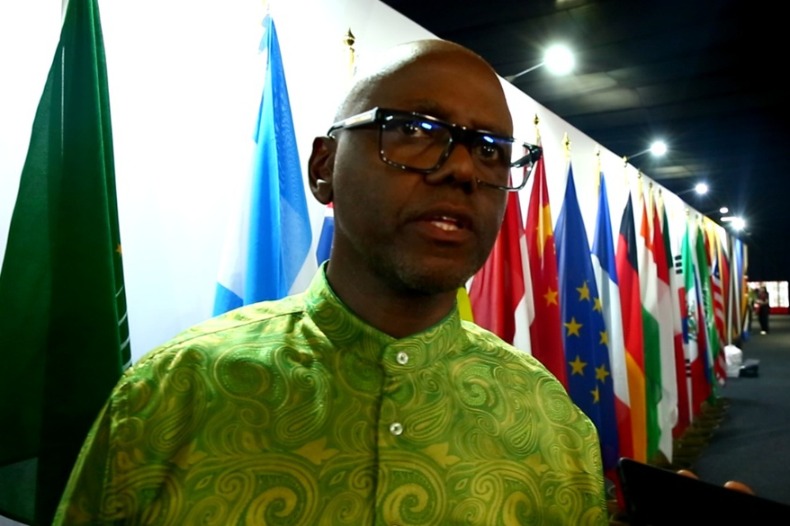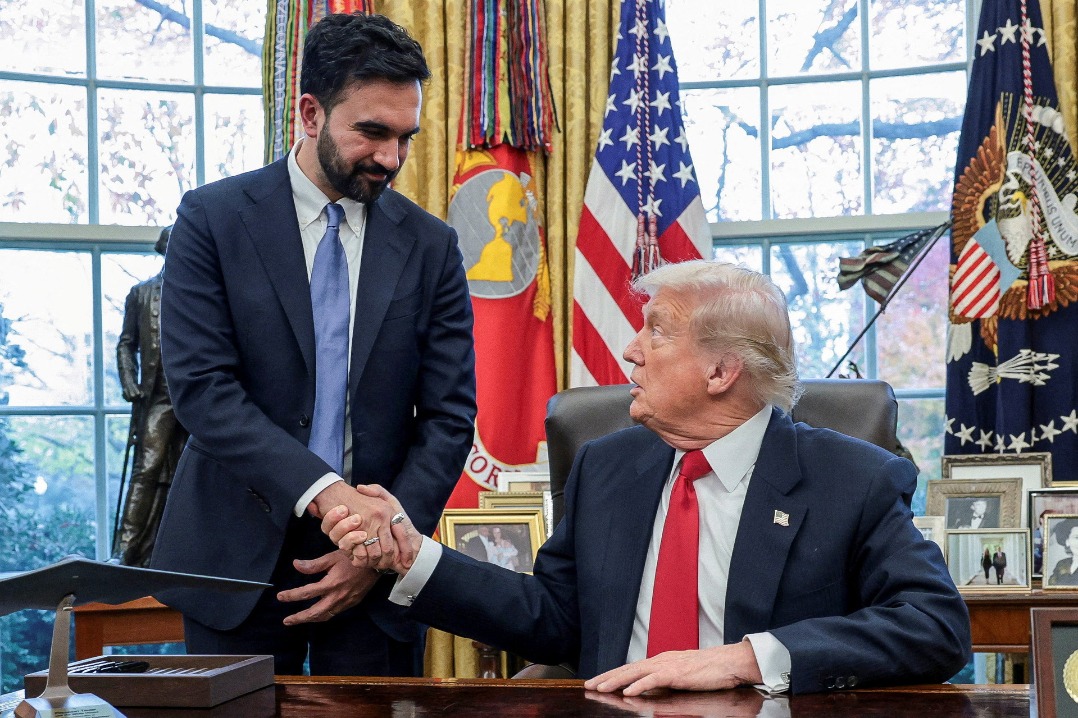Rand Paul to oppose emergency declaration


Republican Senator Rand Paul may have given Democrats a victory in their fight to block US President Donald Trump's emergency declaration to secure funding to extend the wall along portions of the southern border with Mexico.
"I can't vote to give extraconstitutional powers to the president," the Kentucky Republican said on Saturday at Western Kentucky University, according to the Bowling Green Daily News.
On Monday, after Paul's announcement, Senate Majority Leader Mitch McConnell of Kentucky, said that he expects the resolution to pass the Senate, but he does not believe lawmakers will be able to override a veto.
The Senate will vote on the resolution before lawmakers leave on March 15 for a weeklong recess.
Paul joins Republican senators Susan Collins of Maine, Lisa Murkowski of Alaska and Thom Tillis of North Carolina in publicly supporting the Democrats' proposal opposing the emergency declaration. The Democrat-controlled House of Representatives initiated and approved the resolution last week and sent it to the Republican-controlled Senate.
If the four Republicans don't change their announced intention to vote for the resolution or one member of the minority party votes against it, the resolution will be sent to Trump, who has said he would veto it. That would be his first veto since being elected president.
Republican senators Lamar Alexander of Tennessee, Mitt Romney of Utah, Pat Toomey of Pennsylvania and Roger Wicker of Mississippi have spoken against the bill but have not announced how they will vote.
In a speech largely praising Trump, Paul said Trump's declaration of a national emergency at the Mexican border is a dangerous precedent.
"I can't vote to give the president the power to spend money that hasn't been appropriated by Congress," Paul said. "We may want more money for border security, but Congress didn't authorize it. If we take away those checks and balances, it's a dangerous thing."
Last month, Trump signed a bill to keep the government open that also earmarked $1.375 billion to build a wall on portions of the border with Mexico. Trump declared a national emergency to tap billions of dollars in federal money to extend the wall.
Democrats and some Republicans argue that Trump's action is unlawful and, in any case, there is no emergency along the southern border.
After Trump's veto of the resolution, his declaration of emergency to secure funding will be litigated in court. Trump has said he expects to lose at the appellate level, but some legal observers believe he will win in the US Supreme Court.
Writing in The Wall Street Journal, Peter J. Wallison, a senior fellow at the American Enterprise Institute, former general counsel for the Treasury Department and former White House counsel for President Ronald Reagan, said presidents have declared 57 emergencies, including 31 still in effect, since Congress enacted the National Emergency Act in 1976.
"Now we hear congressional complaints that Mr. Trump has somehow managed to overstep his unrestricted authority. Even though they raised no similar objection when (President) Bill Clinton declared a national emergency to prohibit transactions with Sudan (1997) or when (President) George W. Bush used one to impose economic sanctions on Zimbabwe (2003), many in Congress claim to be sure that what is happening on the southern border is not an emergency," Wallison said in his opinion piece.
The difference, Wallison argued, is the earlier cases "did not have partisan political implications".
The Cato Institute, a libertarian research center in Washington, said statistics compiled by American Community Survey data from the US Census Bureau data do not support the president's argument for a national emergency.
"The data show that all immigrants — legal and illegal — are less likely to be incarcerated than native-born Americans relative to their shares of the population," a study by the Cato Institute concluded. "Previous empirical studies of immigrant criminality generally find that immigrants do not increase local crime rates, are less likely to cause crime than their native-born peers, and are less likely to be incarcerated than native-born Americans."
































